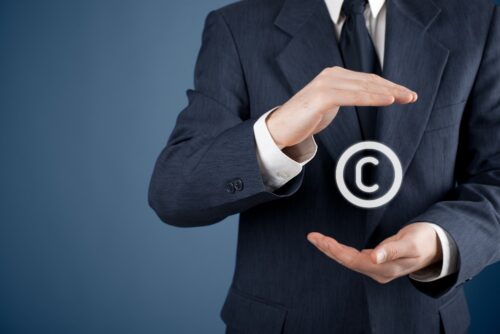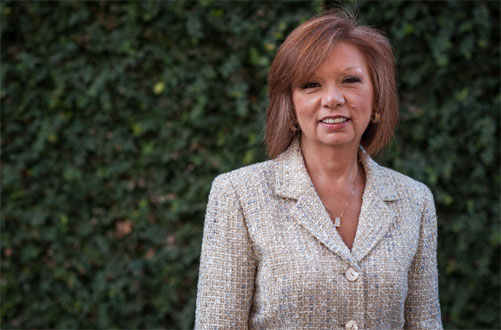
CASE Act
As part of the Consolidated Appropriations Act for 2021 signed into law on December 27, 2020, the Copyright Alternative in Small-Claims Enforcement (CASE) Act was passed. The CASE Act establishes a tribunal called the “Copyright Claims Board” (CCB) within the U.S. Copyright Office to handle small-scale claims of copyright infringement. Copyright registrants can use this option to pursue smaller copyright infringement matters in a more streamlined and lower cost process. The hearings may be conducted electronically, making CASE proceedings attractive and available to many small claimants.
The Board will be made up of three members, and will have two supporting attorneys. At least two Board members must preside at any hearing. Discovery is limited to interrogatories, requests for admissions and production of documents. Any other type of discovery requires a showing of good cause. An accused infringer will have 60 days after service of a claim to “opt out” which will result in dismissal of the claim without prejudice, requiring the claimant to file in District Court. However, there are incentives for both sides to use the CASE system: it should be faster and cheaper for a claimant, and it provides a low limit of potential liability for an accused infringer.
Awards for infringement of a single work are limited to $15,000 (instead of the $150,000 limit in District Court); and awards for infringement of multiple works in a single proceeding are limited to $30,000. The plaintiff can pursue actual or statutory damages up to the monetary limits, but willful infringement is not considered and cannot be used to enhance the damages award. Attorney fees and costs are generally not available except in cases of bad faith, and in those cases are capped at $5,000 unless the conduct was particularly egregious.
A party can request reconsideration of a CCB decision if the party believes the CCB’s decision includes error. If the CCB accepts the request, the decision is reviewed for clear error. A party can seek review of the CCB’s decision with the Register of Copyrights. The CCB decision is reviewed for abuse of discretion by the Register of Copyrights. After review by the Register of Copyrights, a party can seek relief from the appropriate district court in very limited circumstances: where the CCB decision resulted from fraud, corruption, or other misconduct, the CCB exceeded its authority or failed to provide a final judgment, or a default or failure to prosecute judgment was entered resulting from excusable neglect by the party seeking relief.
A CASE claim may be based on a pending copyright application prior to the issuance of a registration. However, any decision on the claim will not be final until after the registration is obtained. A CASE claim may not be filed without a copyright application submitted to the US Copyright Office. The CASE system may be attractive to owners of multiple copyrighted works who may be able to avoid the high cost of litigation in District Court. However, this may be restricted since the Register of Copyrights has the authority to place limits on the number of cases that the same claimant may be allowed to bring each year.
PLSA
The Protecting Lawful Streaming Act raises the criminal penalties for illegally streaming copyrighted material from a misdemeanor to a felony for certain defendants. The felony penalty does not apply to unauthorized streamers in general. Instead, the felony penalties will apply to a streaming service that is intentionally designed to stream copyrighted works without permission. The PLSA was drafted to provide stronger penalties to go after bad actors, while sparing unsophisticated and small-time offenders (e.g., a fan live streaming a concert without authorization).
Sierra IP Law will provide further guidance on these laws as they are implemented, and advise and assist its clients in utilizing the new tools provided by the CASE act. Contact Sierra IP Law for guidance with regarding to copyright matters.
© 2021 Sierra IP Law. The information provided herein is not intended to be legal advice, but merely conveys general information that may be beneficial to the legal professional community, and should not be viewed as a substitute for legal consultation in a particular case.

"Mark and William are stellar in the capabilities, work ethic, character, knowledge, responsiveness, and quality of work. Hubby and I are incredibly grateful for them as they've done a phenomenal job working tirelessly over a time span of at least five years on a series of patents for hubby. Grateful that Fresno has such amazing patent attorneys! They're second to none and they never disappoint. Thank you, Mark, William, and your entire team!!"
Linda Guzman

Sierra IP Law, PC - Patents, Trademarks & Copyrights
FRESNO
7030 N. Fruit Ave.
Suite 110
Fresno, CA 93711
(559) 436-3800 | phone
BAKERSFIELD
1925 G. Street
Bakersfield, CA 93301
(661) 200-7724 | phone
SAN LUIS OBISPO
956 Walnut Street, 2nd Floor
San Luis Obispo, CA 93401
(805) 275-0943 | phone
SACRAMENTO
180 Promenade Circle, Suite 300
Sacramento, CA 95834
(916) 209-8525 | phone
MODESTO
1300 10th St., Suite F.
Modesto, CA 95345
(209) 286-0069 | phone
SANTA BARBARA
414 Olive Street
Santa Barbara, CA 93101
(805) 275-0943 | phone
SAN MATEO
1650 Borel Place, Suite 216
San Mateo, CA, CA 94402
(650) 398-1644. | phone
STOCKTON
110 N. San Joaquin St., 2nd Floor
Stockton, CA 95202
(209) 286-0069 | phone
PORTLAND
425 NW 10th Ave., Suite 200
Portland, OR 97209
(503) 343-9983 | phone
TACOMA
1201 Pacific Avenue, Suite 600
Tacoma, WA 98402
(253) 345-1545 | phone
KENNEWICK
1030 N Center Pkwy Suite N196
Kennewick, WA 99336
(509) 255-3442 | phone
2023 Sierra IP Law, PC - Patents, Trademarks & Copyrights - All Rights Reserved - Sitemap Privacy Lawyer Fresno, CA - Trademark Lawyer Modesto CA - Patent Lawyer Bakersfield, CA - Trademark Lawyer Bakersfield, CA - Patent Lawyer San Luis Obispo, CA - Trademark Lawyer San Luis Obispo, CA - Trademark Infringement Lawyer Tacoma WA - Internet Lawyer Bakersfield, CA - Trademark Lawyer Sacramento, CA - Patent Lawyer Sacramento, CA - Trademark Infringement Lawyer Sacrament CA - Patent Lawyer Tacoma WA - Intellectual Property Lawyer Tacoma WA - Trademark lawyer Tacoma WA - Portland Patent Attorney - Santa Barbara Patent Attorney - Santa Barbara Trademark Attorney